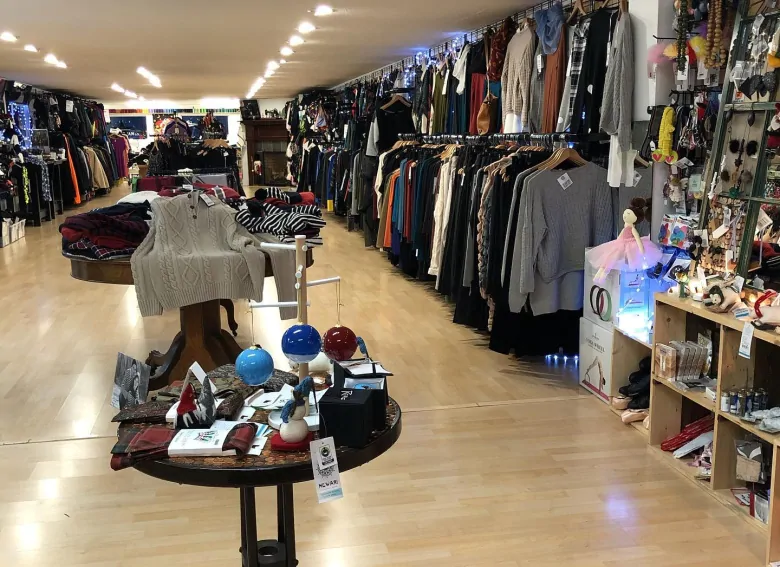Show us the money: Whitehorse businesses say they need financial help now, before it's too late

The federal government is making big promises to small businesses to help them weather the economic impacts of the COVID-19 pandemic, but a Whitehorse business says if the money doesn’t come through soon, it may be too late.
“We can’t survive too much longer if this continues without any real support,” said Jen Williams, owner of The Collective Good, a clothing and housewares store in Horwoods Mall.
Like many other retail businesses in Whitehorse, The Collective Good store is closed, but taking orders online and by phone. Still, Williams said revenue is down 90 per cent.
Earlier this week, Prime Minister Justin Trudeau announced emergency funding for small businesses in the form of wage supplements and loans, but the programs aren’t active yet.
WIliams said she’s trying to stay hopeful, but with bills mounting and income close to nil, she’s getting fed up with the federal government’s promises.
“We’re tired of the words and we’re tired of the perception out there that everybody’s covered and that government has come through, because they just haven’t,” she said.
“There is not a single program that is live and online today that a business can apply to. Not one.”
Bill Morneau, federal finance minister, told CBC Radio’s The Current on Thursday that the emergency wage subsidy program will be live in three to six weeks. That program offers to pay 75 per cent of employee wages and is retroactive to March 15.
Morneau said the timeline is similar for the emergency loan program, which offers interest-free loans of up to $40,000 and up to $10,000 in loan forgiveness if paid back within a specified timeline.
Wage subsidy program unconvincing, says store owner
Under normal circumstances, Andrea Rodger, owner of Sportees Activewear, a clothing and dancewear store, would be celebrating her business’s 36th anniversary this week.
Instead, she’s wondering if it will make it to 37. Rodger said it’s hard to keep up with the changing information. She said the government’s wage subsidy program, which is supposed to encourage employers to hire back employees, isn’t convincing.
“We were originally told to lay everyone off … so I’m not sure if there’s a big incentive to hire people back and pay their wages when we’re not making any revenue,” she said.
Rodger said the thing that might save her business is that she sews a lot of her own product and therefore doesn’t have huge inventory costs. For now, she hopes customers will continue to place orders through her website.

Grand opening postponed indefinitely
If it’s an unpromising time to be a small business owner, then it’s an especially dismal time to be on the brink of opening a new business.
Erik Miller was scheduled to open his new micro brew pub, Polarity Brewing, last month.
He said he and investors have spent a lot of money renovating the 4,000 square foot space in Whitehorse’s Waterfront Station. But Miller said his business isn’t eligible for any of the federal programs announced so far.
“A lot of them are based on historical revenue or historical payroll and as a new business, we don’t have historical revenues and our payroll has been zero to two employees, so it doesn’t meet criteria yet.”
Miller said he’s hoping to at least get back the money he spent on the brew pub’s grand opening, which he had to call off. On Wednesday, the Yukon government announced funding to help cover losses from events that were cancelled due to COVID-19.

Only half of businesses expect to recover: chamber
The Whitehorse Chamber of Commerce said direct financial aid is the most requested action to help its members. That’s according to a survey conducted by Strategic Moves consulting company between March 20 and 25.
“The [chamber] wishes to emphasize that the losses businesses are experiencing now are largely unrecoverable,” said a press release issued by the chamber earlier this week. “Therefore, debt financing, even if it were available universally, would do little to alleviate the pressures.”
The chamber said only half of the businesses surveyed think they will be able to recover from the economic impact of the pandemic.
The chamber said its survey received 115 responses from the 878 invitations it sent to its members and the wider business community.





